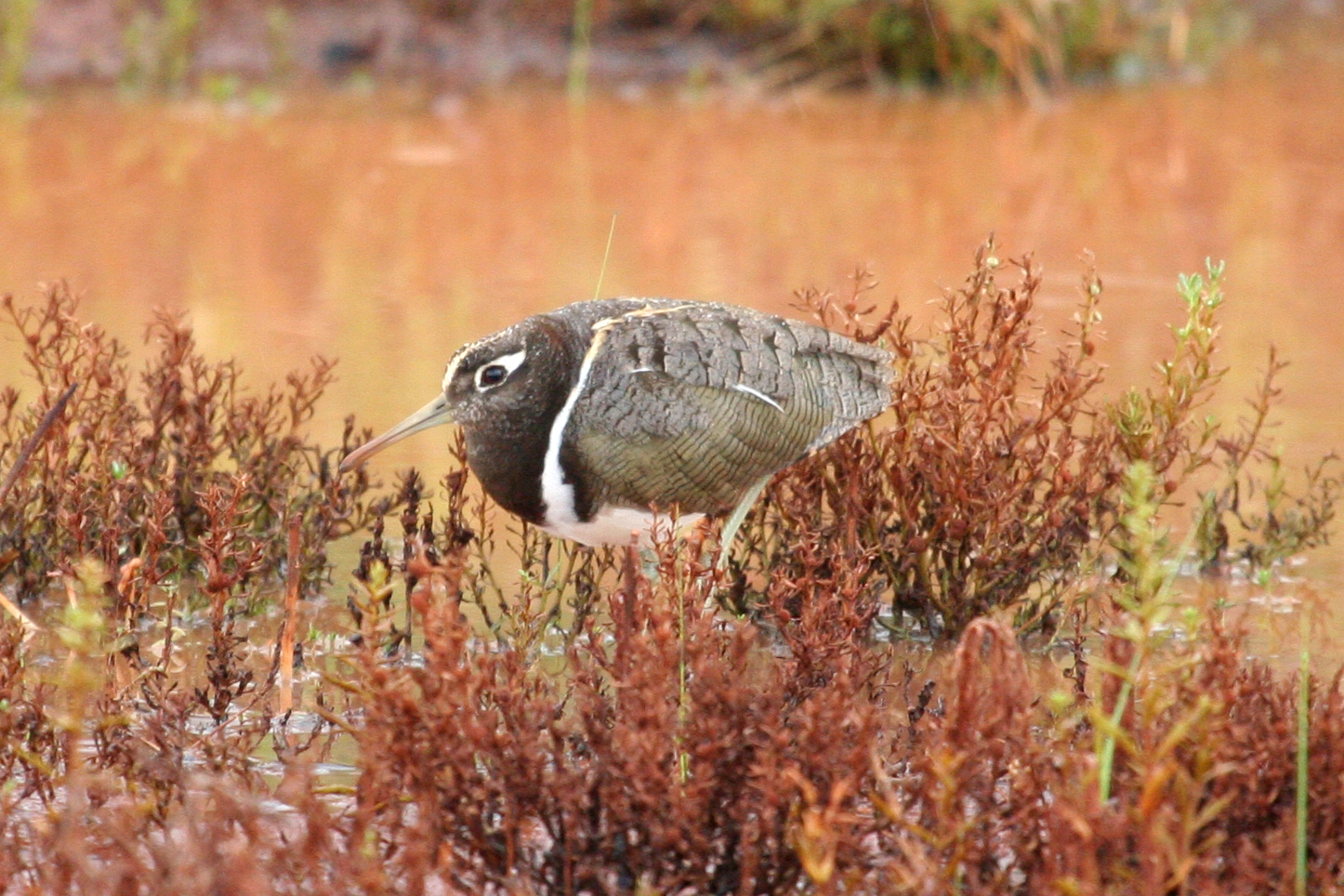Elected representatives in government are in charge of the policy and funding that can make or break saving threatened species. Their decisions and actions matter.
Banks has or used to have 21 threatened animals within its boundaries. One of them is me, the Australian Painted Snipe.
We took care to attach appropriate images that are as close to representative of each species as our resources and the availability of images allowed. However, we could not ensure perfect accuracy in every case. Some images show species that share the same genus but not at the species or subspecies level.
Australian Painted Snipe
Rostratula australis
Status: Endangered
The Environment Protection and Biodiversity Conservation Act 1999 (EPBC Act) lists threatened species under six categories:
Extinct, Extinct in the wild, Critically Endangered, Endangered, Vulnerable, Conservation dependent. Read more about these categories
Rostratula australis is found across 145 electorates.
The Australian Painted Snipe is a stocky wading bird around 220–250 mm in length with a long pinkish bill. The adult female, more colourful than the male, has a chestnut-coloured head, with white around the eye and a white crown stripe, and metallic green back and wings, barred with black and chestnut. There is a pale stripe extending from the shoulder into a V down its upper back. The adult male is similar to the female, but is smaller and duller with buff spots on the wings and without any chestnut colouring on the head, nape or throat. This species is generally seen singly or in pairs, or less often in small flocks. Flocking occurs during the breeding season, when adults sometimes form loose gatherings around a group of nests. Flocks can also form after the breeding season, and at some locations small groups regularly occur. Groups comprising of a male and up to six offspring have been observed.¹
Explore more about this species on the Atlas of Living Australia




Explore more about the threats facing species on our Resources page.
- Downy Wattle (Acacia pubescens)
- Allocasuarina glareicola (Allocasuarina glareicola)
- Thick-lipped Spider-orchid (Caladenia tessellata)
- Leafless Tongue-orchid (Cryptostylis hunteriana)
- White-flowered Wax Plant (Cynanchum elegans)
- Deyeuxia appressa (Deyeuxia appressa)
- Camfield's Stringybark (Eucalyptus camfieldii)
- Yellow Gnat-orchid (Genoplesium baueri)
- Small-flower Grevillea (Grevillea parviflora subsp. parviflora)
- Hibbertia puberula subsp. glabrescens (Hibbertia puberula subsp. glabrescens)
- Deane's Melaleuca (Melaleuca deanei)
- Knotweed (Persicaria elatior)
- Hairy Geebung (Persoonia hirsuta)
- Nodding Geebung (Persoonia nutans)
- Spiked Rice-flower (Pimelea spicata)
- Sydney Plains Greenhood (Pterostylis saxicola)
- Scrub Turpentine (Rhodamnia rubescens)
- Magenta Lilly Pilly (Syzygium paniculatum)
You are in federal electorate Banks.
